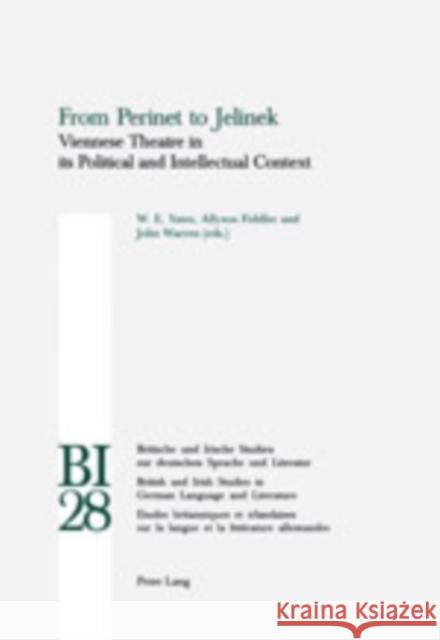From Perinet to Jelinek: Viennese Theatre in Its Political and Intellectual Context » książka
topmenu
From Perinet to Jelinek: Viennese Theatre in Its Political and Intellectual Context
ISBN-13: 9783906766805 / Angielski / Miękka / 2001 / 290 str.
Kategorie:
Kategorie BISAC:
Wydawca:
Verlag Peter Lang
Język:
Angielski
ISBN-13:
9783906766805
Rok wydania:
2001
Numer serii:
000036100
Ilość stron:
290
Oprawa:
Miękka
Wolumenów:
01











